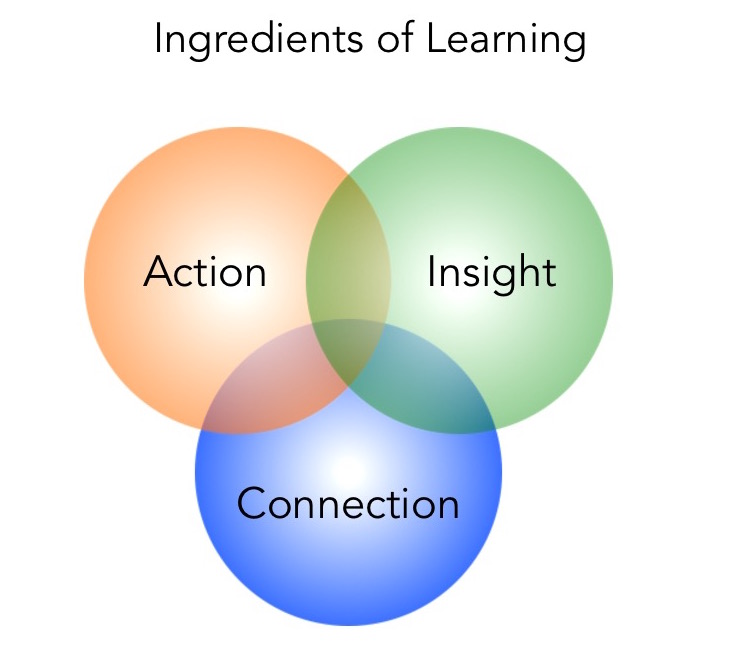
How To Keep Your Learning Alive
28th Jun 2016You know and I know that training courses aren’t where we do most of our learning. But how deliberate are we about ‘doing our learning’ the rest of the time?
Yesterday I wrapped up a leadership development programme that I’d been running over the past six months. Inevitably, participants want to know “how do we keep our learning alive now that the formal programme has finished?”
So, we brainstormed a bunch of ideas. Here’s what we came up with:
- Get a mentor: Find a mentor from outside of your day-to-day environment to provide you with perspective and guidance.
- Be a mentor: find someone who’s interested in learning about how you do what you do. You learn a lot by mentoring – it challenges you to unpack what you instinctively know, and think about it with fresh eyes.
- Get exposure to different people: Seek out people that think differently to you. They might be in-the-flesh, or maybe you’ll find them in magazines, podcasts, on TV. Don’t judge right or wrong, good or bad. Be curious as to how they see the world they way they do.
- Share what you’re learning: When you learn something new, the best way to embed it is to teach it. Find an audience, share your insights, ask for their perspectives too.
- Write: get a journal, write daily. This isn’t to share, it’s to help you get stuff out of your head and make better sense of it. Seeing your thinking helps you shift your thinking.
- Get a coach: different to a mentor, a coach provides you with thinking space to make sense of your world, understand yourself better, think through your choices and plan your next steps.
- Have a ‘Beginner’s Mind’ project: Find something where you’re a complete beginner, where you have no sense of how to do it. Here’s a great post on how to do that.
- Try doing things differently: Example: sick of the way your meetings are working? Find ways to mix it up. Rotate the chair. Stand up. Stay curious about what works, keep evolving.
Here’s the model I use to teach this stuff:

Action: when you do stuff, you create opportunities to ‘bump up against the world’. I find the best actions are the scary ones, the ones on the edge of your comfort zone. They invite and challenge you to do things differently. Trying new things, having a Beginner’s Mind project, sharing what you’re learning are all examples of ‘action’.
Connection: similarly, connection with other people provides great opportunity for growth. Mentors and coaches are very useful resources. And, my colleague Nick Petrie and I think the real ‘accelerant’ in this circle is to get some Colliding Perspectives – the people who challenge your view of the world and offer a different one to consider.
Insight: this is the practice of engaging with what’s in your head and making sense of it. It’s about stepping back from game, and noticing the mindset you’ve been playing with. Seeing your thinking that’s guiding your behaviour. Perhaps exploring the assumptions you’re holding, and how useful they are. Trying on some new assumptions for size. Working with a coach and using a journal are both powerful ways to step out of the game to some deeper insights.
Deliberately combine these in ways that work for you, and you will keep your learning alive.
P.S. My theme for the year is “Be curious, be connected, be courageous.” Can you see how those three things fit the model?
P.P.S. If you’re curious about more of the thinking and research behind this model, check out the CCL whitepaper ‘Vertical Development Part 2’ by Nick Petrie (with input from yours truly). I think this paper provides some very practical approaches to accelerating development both for individuals, and organisations.
P.P.P.S Like this post? You’re only getting half the story. Sign up to my ‘Fresh Thinking’ newsletter, delivered monthly to your inbox.
P.P.P.P.S Are you a Change Maker? Find out when the next intake of my Change Makers programme is. Want to Learn more.
Spiral Leaves picture by Sulabyrinth as seen on pragmaticmom.com

